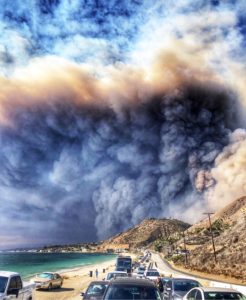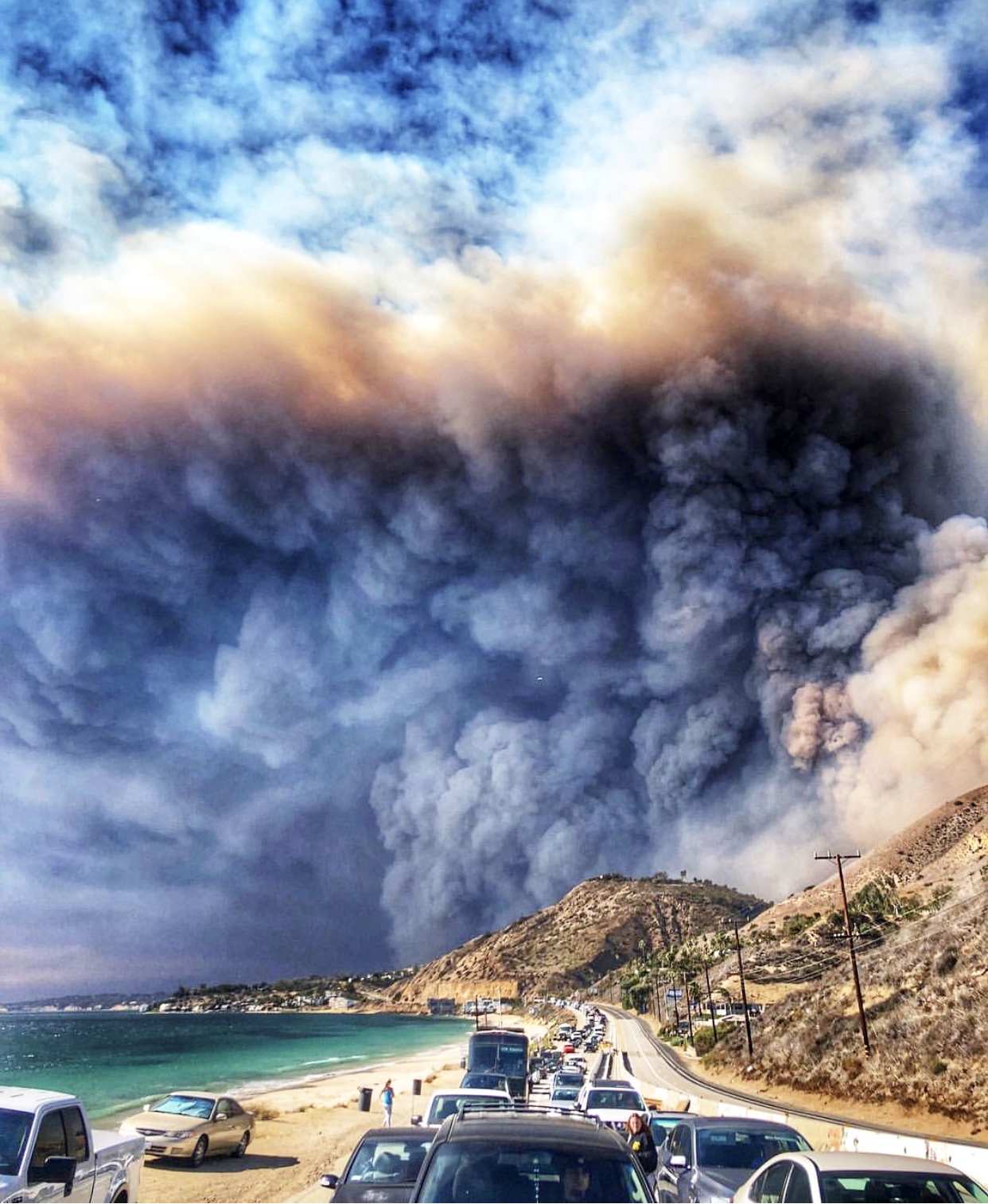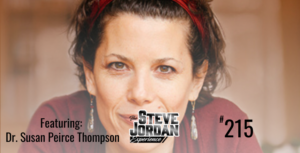This blog post is in light of the wildfires that are sweeping through the neighborhoods of my homeland in Los Angeles. We Can and We Will Overcome.

We Can and We Will Overcome
Fires can lead to significant emotional distress in addition to tremendous property loss. Losing your home in a fire involves not only the loss of your residence but also many other invaluable such as photo albums, important documents, and collectible objects that are one of a kind. A home is supposed to be your place of security, comfort, and safety. After a fire, this sense of security can also be lost and can significantly disrupt the normality of daily life.
I Almost Died In A Fire
When I was in college, I almost died in a fire exactly one year to the date of the accident that almost took my life. I was hanging out with a girl and we lit some candles to set the mood. When I took her home that evening and came home to sleep, I neglected to blow out those candles.
I woke up early that morning feeling like I was having an asthma attack, but what I soon realized was that I was choking on smoke from a fire in the living room. When I coughed my way through the cloud of smoke that engulfed my room, I saw waves of flames up the wall and over the ceiling in the living room. I was in shock. Fearlessly, I ran through the living room away from the fire to get out the front door.
Opening the door helped me find safety, but it also allowed air to flood the room, fueling the fire to burn out of control. Keeping my cool, I began to yell and call for help. Two of my neighbor friends who were still partying from the night before heard my yells, saw the flames coming from the windows and called 911. Within minutes the College Park fire department showed up saving my roommate who was stuck in his room and extinguishing the fire.
Everyone was safe but left in utter shock. The paramedics at the scene said, “kid you were lucky you woke up because most people suffocate and die in fires like this.” Holy shit I thought to myself! Another close call of almost losing my life. For precaution, the paramedics brought us to the hospital to breathe in oxygen to clear our lungs for several hours.
I had to make the dreadful call to my parents. You can probably imagine how they must have felt when they learned of this. Let’s just say, they were in despair. The next year my parents came to spend time with me on that day, September 23rd to break the curse that says, “bad things happen in three’s”.
Common Emotional Reactions To Loss In Fires
Losing a home can cause significant emotional distress. You should not underestimate the challenge of evacuation, relocation and rebuilding after a fire.
It is common for people to experience several stages of adjustment including shock, anger, depression and hopelessness. Ultimately, however, people can reach a stage of acceptance and become able to move beyond disbelief, bitterness, and sadness. Positive feelings can begin to re-emerge as the focus shifts towards the future. Safety, security, and comfort are regained, and life moves forward once again.
Coping and Recovering From A Fire
In the middle of a crisis, it can become difficult to take care of yourself with so many other worries preoccupying your mind. However, this is a good time to think about your personal resiliency, healing and a sense of normality. Some self-care strategies you may want to consider are:
- Reduce stress with regular exercises, meditation, and breathing.
- Allow yourself to feel bad, cry and release negative emotions in a healthy manner.
- Give yourself permission to feel good. You can have periods of joy even when coping with loss.
- Putting off major life decisions, such as switching jobs, if possible.
- Lowering your expectations of what you “should be doing.”
- Not isolating yourself too much. Spending some time with people is healthy in recovery.
- Talking about your ordeal with friends and family.
- Taking advantage of community support.
- Focusing on what you are thankful for in spite of your loss.
- Staying away from unprescribed mood-altering substances, such as alcohol and other drugs.
- Getting plenty of rest when possible and maintain a normal sleep/wake cycle.
- Eating well-balanced meals.
We Can and We Will Overcome
Your health & fitness coach,
Steve Jordan



